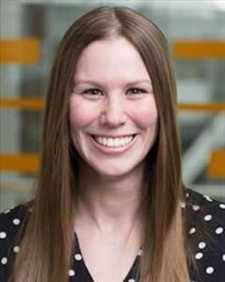A successful retirement requires comprehensive financial planning in the many years that precede it. For those who wish to enjoy their retirement while aging in place – and have enough equity in their home – a reverse mortgage could be a sound financial tool. However, this type of loan is complex, and it isn’t for everyone. Learning more about this loan can help you decide whether it’s right for you and how to best use it in your retirement.
What Is A Reverse Mortgage?
A reverse mortgage is a home loan that converts a portion of your home equity into cash and is available for homeowners age 62 or over. It does not have to be paid back in monthly installments as long as you remain living in the home to which it applies. While a monthly mortgage payment is not required, you are still responsible for paying your property taxes and insurance and for maintaining the home. The loan plus interest must be paid back once the home is no longer your primary residence or you pass away.
See What You Qualify For
Buy A Home
Discover mortgage options that fit your unique financial needs.

Refinance
Refinance your mortgage to have more money for what matters.
Tap Into Equity
Use your home’s equity and unlock cash to achieve your goals.
Types Of Reverse Mortgages
Just like there are different types of home loans, there are different types of reverse mortgages. Each comes with its own qualifications, has its own purpose and may meet a different type of need.
Home Equity Conversion Mortgage (HECM)
The most common type of reverse mortgage is the Home Equity Conversion Mortgage (HECM). This loan is backed by the Federal Housing Administration (FHA), a part of the Department of Housing and Urban Development (HUD). As such, these loans may have stricter qualification requirements and loan limits. HECM requirements also include FHA-approved reverse mortgage counseling to ensure you understand the loan and any alternatives you may have.
As this is the most popular reverse mortgage loan, it will be used to detail the reverse mortgage qualifications, process, costs and payment for the remainder of this article.
Single-Purpose Reverse Mortgage
Just as its name describes, a Single-Purpose Reverse Mortgage must be used for one specific purpose that must be approved. These loans are offered by the government or a nonprofit agency and typically go toward making home improvements or paying property taxes.
Proprietary/Jumbo Reverse Mortgage
Proprietary (Jumbo) Reverse Mortgage loans are offered by private lenders. Because they aren’t backed by the government, these loans offer proceeds that surpass the federal loan limit. These are typically used by borrowers with high-value properties.
How Reverse Mortgage Loans Work
A reverse mortgage allows you to turn a portion of your equity into money that will first go toward paying off your current mortgage, if you have one. The remaining funds can be used for anything. Like a traditional mortgage, you’ll use your home as collateral. However, you’re not required to make a monthly payment – like a traditional mortgage requires. Once you move out of the home, sell it or pass away, the loan comes due. The amount you receive for a reverse mortgage will depend on the age of the youngest borrower, home value and current interest rates. You may also need to have money set aside to pay your annual property taxes and homeowners insurance.
Qualifying For A Reverse Mortgage
Like all home loans, you must meet certain eligibility requirements to get a reverse mortgage loan.
- You must be 62 years or older.
- You can own your home free and clear or have an existing mortgage.
- You must have enough equity in the home, typically 50% or higher.
- You must be current on any federal debt you have – no delinquencies.
- You must pass a financial assessment that shows you are willing and able to pay your property taxes, homeowners insurance and maintenance costs. You may be required to set some of your reverse mortgage proceeds aside to pay for these.
- You must attend a HUD-approved informational counseling session.
- There is no minimum credit score required.
There are also specific eligibility requirements for your home. These include:
- The home must be your primary residence.
- The home must be a single-family residence, approved condo, townhome, one- to four-unit or manufactured home built after June 1976 that meets FHA requirements.
- The property must be in good condition and meet HUD standards.
Reverse Mortgage Costs
Reverse mortgages are usually more expensive than traditional loans. Along with interest on the amount you borrow, you can also expect these costs.
- Upfront mortgage insurance premium (MIP): The upfront mortgage insurance allows the FHA to make the loan non-recourse. This means you won’t owe more than the home’s value, even if your mortgage exceeds the appraised value. Upfront MIP is 2% of the amount borrowed.
- Annual MIP: This is paid each year and is about 0.5% of your loan balance.
- Origination fee: The origination fee covers a lender’s costs. The FHA allows up to $2,500 in origination fees on loans up to $125,000 and up to $6,000 on higher loan amounts, with a maximum cost of $6,000. The fee is usually 2% of the first $200,000 and 1% of any amount above $200,000.
- Closing costs: This covers costs things like the appraisal, credit check, inspection and more.
- Counseling fees: This is for the required HECM counseling and is usually paid out of pocket. This fee is usually around $125 – but could be more or less depending on the agency.
Ways To Receive The Reverse Mortgage Money
The proceeds from a fixed-rate HECM are paid in one way: a lump sum. However, an adjustable-rate HECM offers more payment flexibility. Borrowers with an adjustable-rate can receive their money in the following ways:
- Lump sum: This payment option delivers your reverse mortgage proceeds in one large payment.
- Monthly payments: With this payment option, your proceeds will be broken into monthly payments that you get throughout the life of the loan (tenure payments) or for a set period of time (term payments).
- Line of credit: With a line of credit, you will receive the funds in a line of credit from which you can draw whenever you need – similar to a home equity line of credit (HELOC). Any unused funds in the line of credit will grow in value over time, which could provide you with more money in the future.
- Combination: You may also receive your money in any combination of the above-mentioned payment options. For example, you could take a portion of your proceeds in one lump sum, then have the remaining money put into a line of credit or split into monthly payments.
Repaying A Reverse Mortgage
As mentioned, you do not need to make monthly payments on your reverse mortgage and the loan (plus any accrued interest) will not come due until the home is no longer your primary residence, you sell the home or you pass away. The loan can also come due if you do not uphold the financial obligations of the loan, including paying your property taxes and insurance or you fail to maintain the home.
To repay the reverse mortgage, you can sell the home or refinance. Because the HECM is backed by the government, it is considered a nonrecourse loan. That means you will never owe more than your home is worth. If the home sells for less than you owe on the reverse mortgage, FHA insurance will pay the difference – not you and not your heirs. If the home sells for more than the loan balance owed, you can keep any remaining profit after the loan is paid off.
If the loan comes due because you pass away, your heirs become responsible for paying back the loan. To do this, they can either sell the home, take out a mortgage on the home or sign the deed over to the lender and simply walk away. If you decide to get a reverse mortgage, it may be a good idea to let your heirs know of your decision and their options if you pass away. If you wish to leave your home to your heirs, a reverse mortgage may not be the right option.
Find A Mortgage Today and Lock In Your Rate!
Get matched with a lender that will work for your financial situation.
Reverse Mortgage Pros And Cons
Reverse mortgages are complex loans that aren’t for everyone. To help determine if this is the right loan for your financial situation and retirement goals, consider the pros and cons of reverse mortgages.
Pros Of Reverse Mortgages
- Age in place: You can continue living in your home and your name stays on the lease.
- Eliminate monthly payment: You are not required to make a monthly mortgage payment, though you will need to continue paying your property taxes, homeowners insurance and home maintenance costs.
- Use proceeds for anything: You can use your reverse mortgage proceeds for anything, including supplementing your retirement income, consolidating debt, paying for in-home care or creating a financial safety net.
- Protect yourself from market fluctuations: A HECM is a non-recourse loan, which protects you if your home value drops below what you owe on your loan.
Cons Of Reverse Mortgages
- Higher costs: Reverse mortgages usually cost more than other loans because they have higher closing costs and come with an additional fee for the required counseling.
- Risk of losing home: If you fail to pay your property taxes and homeowners insurance or maintain the home, your loan may come due and you could lose the home.
- Loss of equity: Since you’re borrowing from your home’s equity, you decrease the amount available.
- Potential impact on other assistance: These loans could impact your Medicaid or Supplemental Security Income, so talk to your financial advisor before getting this loan.
FAQ
Reverse mortgages are complicated loans, so it’s understandable if you have more questions. Review the following questions about reverse mortgages to find the answers to common questions and concerns.
– Sell your current home and downsize into a smaller one.
– Refinance your current mortgage to get better terms, lower your payment or cash out on some of your equity.
– Get a home equity loan or home equity line of credit, or HELOC, to borrow from your equity.
– Rent out a portion of your home while living there yourself. This is known as house hacking and can provide passive income. Just be sure your renter is someone you trust, and consider your personal, financial and legal safety.
The Bottom Line
A reverse mortgage can help you reach your financial goals in retirement, provide a safety net in case of emergency or supplement your income if needed. However, it’s a complex, expensive loan that isn’t right for every situation. It’s best to speak to a financial advisor to learn if it’s best for you. Luckily, there are plenty of alternatives. One of those is refinancing your current mortgage.
Find A Mortgage Today and Lock In Your Rate!
Get matched with a lender that will work for your financial situation.

Lauren Nowacki
Lauren is a Content Editor specializing in personal finance and the mortgage industry. Her writing focuses on reporting the best places to live in the U.S. based on certain interests and lifestyles. She has a Bachelor of Arts in communications from Alma College and has worked as a writer and editor for various publications in Philadelphia, Chicago and metro Detroit.












